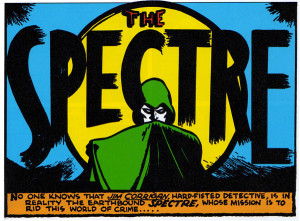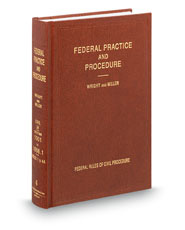 In a remarkably tangled construction dispute, the property owner interpleaded roughly $260,000, after a dispute arose between the general contractor and a sub. One of the interpleaded parties argued that the owner “faces only separate obligations,” augmented by the fact that the Mississippi statute relied upon the subcontractor to freeze the funds was declared unconstitutional. Auto Parts Manufacturing Mississippi, Inc. v. King Construction of Houston, No. 14-60217 (May 8, 2015). The Fifth Circuit disagreed: “The first stage of interpleader only is concerned with whether multiple claims have been asserted, or may be asserted, against a disinterested stakeholder, not whether those claims have merit.” The Court reminded that “interpleader jurisdiction is determined at the time the interpleader complaint is filed . . . ‘and subsequent events do not divest the court of jurisdiction once properly acquired.'”
In a remarkably tangled construction dispute, the property owner interpleaded roughly $260,000, after a dispute arose between the general contractor and a sub. One of the interpleaded parties argued that the owner “faces only separate obligations,” augmented by the fact that the Mississippi statute relied upon the subcontractor to freeze the funds was declared unconstitutional. Auto Parts Manufacturing Mississippi, Inc. v. King Construction of Houston, No. 14-60217 (May 8, 2015). The Fifth Circuit disagreed: “The first stage of interpleader only is concerned with whether multiple claims have been asserted, or may be asserted, against a disinterested stakeholder, not whether those claims have merit.” The Court reminded that “interpleader jurisdiction is determined at the time the interpleader complaint is filed . . . ‘and subsequent events do not divest the court of jurisdiction once properly acquired.'”
Monthly Archives: March 2015
 In St. Joseph Abbey v. Castille, the Fifth Circuit affirmed a substantive due process challenge to a state law that stopped a group of monks from making funeral caskets. The Court explained the limits of that holding and noted: “Nor is the ghost of Lochner lurking about.” 712 F.3d 215, 227 (5th Cir. 2013). Confirming that such a phantom still does not haunt the Circuit, the Court rejected First Amendment and due process challenges to a Texas law that requires a veterinarian to physically examine an animal before treating it (and which thus prohibits “distance” treatment via the Internet.) The Court found a rational connection between the law and quality animal care, and noted: “The idea that content-neutral regulation of the professional-client relationship does not violate the First Amendment has deep roots, and has been embraced by many circuits.” Hines v. Alldredge, No. 14-40403 (March 27, 2015).
In St. Joseph Abbey v. Castille, the Fifth Circuit affirmed a substantive due process challenge to a state law that stopped a group of monks from making funeral caskets. The Court explained the limits of that holding and noted: “Nor is the ghost of Lochner lurking about.” 712 F.3d 215, 227 (5th Cir. 2013). Confirming that such a phantom still does not haunt the Circuit, the Court rejected First Amendment and due process challenges to a Texas law that requires a veterinarian to physically examine an animal before treating it (and which thus prohibits “distance” treatment via the Internet.) The Court found a rational connection between the law and quality animal care, and noted: “The idea that content-neutral regulation of the professional-client relationship does not violate the First Amendment has deep roots, and has been embraced by many circuits.” Hines v. Alldredge, No. 14-40403 (March 27, 2015).
 In Angus Chemical Co. v. Glendora Plantation, Inc., an industrial facility had an easement that gave it “the right to construct, maintain, inspect, operate, protect, alter, repair, replace and change” a pipeline. No. 14-30416 (March 24, 2015). The company plugged and abandoned its original 12″ pipeline in favor of a new 16″ one. The key appellate issue was whether the right to “replace” a pipeline allowed the company to simply substitute one pipeline for another, or whether it also “impl[ied] a corresponding duty to remove” the old one. The Fifth Circuit found the term “replace” was ambiguous in this context, and that there was a material fact issue in the extrinsic evidence about which meaning should prevail. Therefore, it reversed the district court’s summary judgment in favor of the chemical company. This topic — the role of extrinsic evidence in contract disputes — was most recently before the Court in a major case in the “Whoomp! There it is” litigation, and as detailed in a link from that post, frequently leads to disagreement between the trial courts and the Fifth Circuit.
In Angus Chemical Co. v. Glendora Plantation, Inc., an industrial facility had an easement that gave it “the right to construct, maintain, inspect, operate, protect, alter, repair, replace and change” a pipeline. No. 14-30416 (March 24, 2015). The company plugged and abandoned its original 12″ pipeline in favor of a new 16″ one. The key appellate issue was whether the right to “replace” a pipeline allowed the company to simply substitute one pipeline for another, or whether it also “impl[ied] a corresponding duty to remove” the old one. The Fifth Circuit found the term “replace” was ambiguous in this context, and that there was a material fact issue in the extrinsic evidence about which meaning should prevail. Therefore, it reversed the district court’s summary judgment in favor of the chemical company. This topic — the role of extrinsic evidence in contract disputes — was most recently before the Court in a major case in the “Whoomp! There it is” litigation, and as detailed in a link from that post, frequently leads to disagreement between the trial courts and the Fifth Circuit.
The plaintiffs have responded to the United States’ motion for a stay during the pendency of Texas v. United States, No. 15-40238, so that matter is now in the hands of the Court.
Pursuant to section 965 of the Internal Revenue Code, BMC Software repatriated to the United States several hundred million dollars of income earned by a foreign subsidiary. It earned a substantial tax deduction for the year, as this provision is intended to incentivise the fresh investment of foreign cash into the U.S. by companies with international operations. BMC Software v. Commissioner of Internal Revenue, No. 13-60684 (March 13, 2015). Some time later, BMC settled a dispute about the tax treatment of royalties paid to it by the same subsidiary. The IRS then took the position that BMC’s accounting for that dispute amounted to a loan, which would lead to the disallowal of some of the section 965 deduction (loaning money to a subsidiary who then returns it to the US would not be fresh investment). The Fifth Circuit rejected that position and reversed the Tax Court, finding no support for it in either the statute or the settlement document. Because the accounts receivable created as a result of the settlement were not created until after the applicable tax year, the statutory exception for loaned funds could not apply.
At issue in North Cypress Medical Center Operating Co. v. Cigna Healthcare was a basic aspect of the structure of a “preferred provider” insurance program. Under the many policies at issue, “in-network” providers receive more reimbursement than “out-of-network” ones, as an incentive to seek treatment in-network. With respect to the portion of the bill as to which patients had responsibility, certain providers provided “prompt pay” discounts. Insurers disputed whether they were then still responsible for the entire billed amount, or should have their responsibility reduced by a corresponding discount. The Fifth Circuit found that the patients, and thus the providers to whom they assigned their claims, had standing to litigate about this situation (reversing a district court ruling to the contrary). It also found that ERISA preempted state law claims about these issues, that limitations applied (without tolling) to compulsory counterclaims by insurers that sought affirmative relief rather than recoupment, and affirmed the dismissal of RICO claims by the provider. The litigation seems likely to continue, and to produce more issues about complicated and significant ERISA and procedural points. No. 12-20695 (March 10, 2015).
 Allstate did not request a jury trial in its original complaint, but did in response to the defendant’s answer and counterclaim (which also included a jury demand, and which Allstate was entitled to rely upon). After a summary judgment ruling, Allstate made a limited jury waiver on the remaining issue of damages. The district court then vacated its summary judgment ruling and held a bench trial on all issues in the case — liability and damages.
Allstate did not request a jury trial in its original complaint, but did in response to the defendant’s answer and counterclaim (which also included a jury demand, and which Allstate was entitled to rely upon). After a summary judgment ruling, Allstate made a limited jury waiver on the remaining issue of damages. The district court then vacated its summary judgment ruling and held a bench trial on all issues in the case — liability and damages.
The Fifth Circuit found that, “[a]lthough deference is generally accorded to a trial judge’s interpretation of a pretrial order,” this was “[a]t the very least . . a ‘doubtful situation'” that did not support the finding of “a knowing and voluntary relinquishment of the right” to jury trial pursuant to the Seventh Amendment. The Court also found harm because Allstate’s case could survive a JNOV motion, noting that “the district court relied heavily on its weighing of the credibility of the witness’s testimony at trial” in its fact finding. Accordingly, the Court reversed and remanded for jury trial. Allstate Ins. Co. v. Community Health Center, Inc., No. 14-30506 (March 16, 2015, unpublished).
I am speaking to the Appellate Section of the Dallas Bar Association, at the Belo Mansion in downtown Dallas, at noon on Thursday March 19, with a Fifth Circuit update. The official title is “Horses, Whooping Cranes, and Eagle Feathers: the Fifth Circuit in 2014.” Here is a copy of the PowerPoint for the presentation.
Jefferson sued Delgado Community College, alleging that it was “an agency or instrumentality of the government of the State of Louisiana.” The Louisiana Attorney General appeared for the State, argued that she had not correctly named the State in the case, and suggested how to properly serve the college. Jefferson v. Delgado Community College, No. 14-30379 (March 12, 2015, unpublished). The district court denied the AG’s motion to dismiss, pointing to what the pleading said. The AG sought appellate review and the Fifth Circuit found it had no jurisdiction. The ruling was not appealable as a collateral order: “For example, personal jurisdiction implicates a defendant’s due process rights, but a defendant may not appeal the denial of a motion to dismiss based on lack of personal jurisdiction under the collateral order rule.” The Court also denied mandamus relief, noting that the district court’s ruling was not clearly erroneous given the language of the pleading, and suggesting that the parties may wish to consider the AG’s suggestion about proper service for future proceedings in the case.
Breaux sued ASC Industries for age discrimination, but died before the case resolved. Her attorney, Oglesby, filed a “suggestion of death” pursuant to Fed. R. Civ. P. 25. ASC then obtained dismissal when the 90-day period set by that rule passed with no substitution. Breaux’s estate then sought reinstatement, pointing out that the estate representative had not been personally served pursuant to Fed. R. Civ. P. 4 (Rule 25 provides that: “A motion to substitute, together with a notice of hearing, must be served on the parties as provided in Rule 5 and on nonparties as provided in Rule 4. A statement noting death must be served in the same manner.”) ASC countered that Oglesby also represented the estate. The Fifth Circuit sided with Breaux’s estate, finding that a personal representative is a nonparty under Rule 25, noting that is the majority position among Circuits, and distinguishing other cases that reached arguably inconsistent conclusions. Sampson v. ASC Industries, 14-10085 (March 13, 2015, unpublished).
After initially holding that the borrowers’ complaint survived a Twombly challenge as to whether the “grossly inadequate sales price” element of a wrongful foreclosure claim had been properly pleaded, the Fifth Circuit reversed field and issued a revised opinion that affirms dismissal: “We agree with the district court that Plaintiffs’ wrongful foreclosure claim should be dismissed, but for a different reason—Plaintiff’s abandoned the claim on appeal. In challenging the district court’s dismissal, Plaintiffs did not argue that their wrongful foreclosure claim should survive because they adequately pleaded a grossly inadequate sales price. They only argued that the claim should survive because they need not plead that element at all. However, our precedent requires this element in all but a specific category of cases that does not include the instant case.” Guajardo v. JP Morgan Chase, No. 13-51025 (March 10, 2015).
 Allen Stanford spent close to $6 million advertising his investment firm on the Golf Channel. After his empire collapsed, the receiver sued the Golf Channel under the Texas fraudulent transfer statute. The Channel successfully defended in the district court on the ground that it gave reasonably equivalent value. Janvey v. The Golf Channel, No. 13-11305 (March 11, 2015). Unfortunately for the Channel, because the receiver proved Stanford was running a Ponzi scheme, the question was whether it gave value from the perspective of the creditors, not whether it provided quality advertising from the perspective of Stanford’s business operation. “Golf Channel argues that its advertising services did not further the Stanford Ponzi scheme and that the $5.9 million reasonably represents the market value of those services. . . . TUFTA makes no distinction between different types of services or different types of transferees, but requires us to look at the value of any services from the creditors’ perspective. We have no authority to create an exception for ‘trade creditors.'” Accordingly, the Fifth Circuit reversed.
Allen Stanford spent close to $6 million advertising his investment firm on the Golf Channel. After his empire collapsed, the receiver sued the Golf Channel under the Texas fraudulent transfer statute. The Channel successfully defended in the district court on the ground that it gave reasonably equivalent value. Janvey v. The Golf Channel, No. 13-11305 (March 11, 2015). Unfortunately for the Channel, because the receiver proved Stanford was running a Ponzi scheme, the question was whether it gave value from the perspective of the creditors, not whether it provided quality advertising from the perspective of Stanford’s business operation. “Golf Channel argues that its advertising services did not further the Stanford Ponzi scheme and that the $5.9 million reasonably represents the market value of those services. . . . TUFTA makes no distinction between different types of services or different types of transferees, but requires us to look at the value of any services from the creditors’ perspective. We have no authority to create an exception for ‘trade creditors.'” Accordingly, the Fifth Circuit reversed.
With a stay motion still pending in the district court, the United States has asked the Fifth Circuit for an emergency stay of the recent ruling that enjoins President Obama’s immigration program. No. 15-40238. A short clerk’s order, which does not reveal the identity or involvement of any judge “behind the curtain,” has set a response date of March 23. Law360 has written a good article with more detail about the current status in the district court.
In November, a Fifth Circuit panel affirmed the NLRB’s $30,000 award in a retaliation case based on the employer’s handling of a whistleblower. Halliburton Co. v. Administratve Review Board, U.S. Dep’t of Labor, No. 13-60323. The full court has now denied the petition for en banc review, by the close margin of 7 judges for review and 8 against. A 3-judge dissent criticizes the “ad hoc nature” of the panel opinion and warns that it will lead to confusion about what specific conduct can amount to a materially adverse employment action in the context of a retaliation claim.
 Fed. R. Civ. P. 60, titled “Grounds for Relief from a Final Judgment, Order, or Proceeding,” is generally invoked to vacate a judgment because of alleged misconduct, mistake, newly-discovered evidence, or other equitable reasons. Clause (5) of that rule also allows relief if “the judgment has been satisfied, released, or discharged; it is based on an earlier judgment that has been reversed or vacated; or applying it prospectively is no longer equitable.” That provision — and specifically, its rarely-litigated first clause — was at issue in Frew v. Janek, in which the Texas Health and Human Services Commission argued that it had fully performed under a consent decree related to the operation of a Medicaid program. No. 14-40048 (March 5, 2015). Construing the decree “according to ‘general principles of contract interpretation,'” and declining to apply the law of the case doctrine to the interpretation of the decree by the judge who entered the order, the Fifth Circuit found no error in the district court’s ruling that the defendants had complied with the order and performed fully.
Fed. R. Civ. P. 60, titled “Grounds for Relief from a Final Judgment, Order, or Proceeding,” is generally invoked to vacate a judgment because of alleged misconduct, mistake, newly-discovered evidence, or other equitable reasons. Clause (5) of that rule also allows relief if “the judgment has been satisfied, released, or discharged; it is based on an earlier judgment that has been reversed or vacated; or applying it prospectively is no longer equitable.” That provision — and specifically, its rarely-litigated first clause — was at issue in Frew v. Janek, in which the Texas Health and Human Services Commission argued that it had fully performed under a consent decree related to the operation of a Medicaid program. No. 14-40048 (March 5, 2015). Construing the decree “according to ‘general principles of contract interpretation,'” and declining to apply the law of the case doctrine to the interpretation of the decree by the judge who entered the order, the Fifth Circuit found no error in the district court’s ruling that the defendants had complied with the order and performed fully.
I just wrote an article in the most recent Appellate Advocate – the publication of the Texas State Bar Appellate Section – about the key recent cases from the Fifth Circuit about jury charge error. I hope you enjoy it and find it useful in your practice!
Richardson alleged that he was terminated, in violation of Louisiana’s whistleblower statute, for revealing fraudulent time records and overbilling. The district court granted summary judgment and the Fifth Circuit reversed. Richardson v. Axion Logistics, No. 14-30306 (revised March 23, 2015). Applying the Twombly “plausibility” standard, the Court found adequate pleading about his employer’s knowledge of the alleged misconduct, as well as the timeline of events leading up to his termination. The pleading itself is available for review here; the specific paragraphs identified by the Court as to the employer’s knowledge are highlighted in yellow, and those identified about his termination in orange.
 The L/B Nicole Eymard (right) became stuck while servicing a well in the Gulf of Mexico. The owner of the boat sued the contractor that hired the boat, in addition to the well owner, and both were found liable for charter fees while the vessel was unable to move. The well owner obtained indemnity from the contractor because the contractor had agreed to indemnify it for
The L/B Nicole Eymard (right) became stuck while servicing a well in the Gulf of Mexico. The owner of the boat sued the contractor that hired the boat, in addition to the well owner, and both were found liable for charter fees while the vessel was unable to move. The well owner obtained indemnity from the contractor because the contractor had agreed to indemnify it for  claims “based upon personal injury or death or property damage or loss.” Unpaid charter fees are a “loss” within the meaning of that language, even without proof of damage to property. Offshore Marine Contractors, LLC v. Palm Energy Offshore, LLC, No. 14-30059 (March 2, 2015).
claims “based upon personal injury or death or property damage or loss.” Unpaid charter fees are a “loss” within the meaning of that language, even without proof of damage to property. Offshore Marine Contractors, LLC v. Palm Energy Offshore, LLC, No. 14-30059 (March 2, 2015).
An insurer settled with its insured; the settlement “did not contain an admission of liability under the Policy and both parties dispute whether the Policy covered the four claims at issue.” Accordingly, the insured had no claim under the Texas Prompt Payment Act for an alleged breach of the settlement. Tremago, L.P. v. Euler-Hermes American Credit Indemnity Co., No. 13-41179 (Feb. 25, 2015, unpublished). The Court also found that a trio of statements such as “[Plainitff] has not alleged, let alone proffered any evidence of any act on [Defendant’s] part that fairly can be characterized as ‘so extreme’ that it would cause ‘injury independent of the policy claim’ was sufficient to place the plaintiff on notice that its extra-contractual claims were within the scope of the defendant’s summary judgment motion.
 A design firm proved at trial that Hallmark Design Homes built hundreds of houses such as the one on the right, using its copyrighted plans without permission. Hallmark filed for bankruptcy; the remaining issue was whether the claim was “advertising injury” under Mid-Continent’s various liability policies. Mid-Continent Casualty Co. v. Kipp Flores Architects, LLC, No. 14-50649 (Feb. 26, 2015, unpublished).
A design firm proved at trial that Hallmark Design Homes built hundreds of houses such as the one on the right, using its copyrighted plans without permission. Hallmark filed for bankruptcy; the remaining issue was whether the claim was “advertising injury” under Mid-Continent’s various liability policies. Mid-Continent Casualty Co. v. Kipp Flores Architects, LLC, No. 14-50649 (Feb. 26, 2015, unpublished).
The Fifth Circuit affirmed judgment for the insured. After reminding that additional evidence can be offered in a coverage dispute about matters addressed in a prior lawsuit, the Court held: “[I]t is undisputed that Hallmark’s primary means of marketing its construction business was through the use of the homes themselves, both through model homes and yard signs on the property of infringing homes it had built, all of which were marketed to the general public . . . .” Because the homes themselves were “advertisements,” Mid-Continent’s policies covered the prior judgment.
(This post’s title comes from an exchange between Falstaff and Mistress Ford in The Merry Wives of Windsor.)